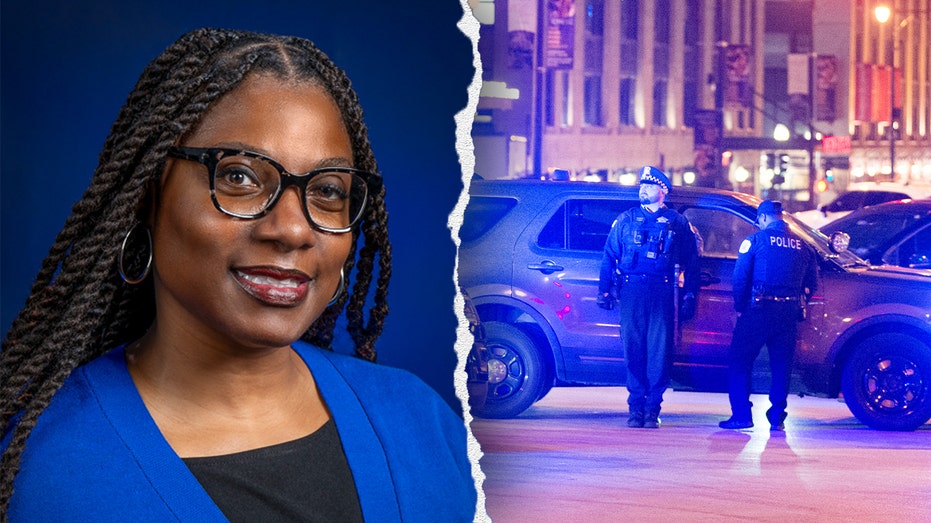Imagine a world where a person experiencing a mental health episode could legally attack a police officer without facing consequences. This is the scenario that a new bill in Illinois is proposing, stirring a heated debate across the state and beyond. Introduced by Democratic state Representative Lisa Davis, House Bill 3458 has sparked controversy, with critics arguing it could endanger law enforcement and set a dangerous precedent.
What is House Bill 3458?
House Bill 3458, introduced by Rep. Lisa Davis in February, aims to provide a defense for individuals who attack peace officers during a mental health episode. The bill specifically states that it would be a defense to aggravated battery if the individual battered is a peace officer and the officer was responding to an incident involving someone believed to be experiencing a mental health episode.
Key Provisions of the Bill
- The bill applies when the officer interacts with a person whom a reasonable officer could believe is having a mental health episode.
- The person must have a documented mental illness.
- The person must have acted abruptly during the interaction.
The Controversy Surrounding the Bill
The introduction of House Bill 3458 has sparked a fierce debate among lawmakers, law enforcement, and the public. Critics argue that the bill could lead to an increase in attacks on police officers and undermine their ability to maintain public safety.
Criticism from Law Enforcement
Law enforcement agencies and officers have been vocal in their opposition to the bill. A blog called Second Cop City, which focuses on Chicago policing matters, reported that if the bill passes, “mental illness will be an excuse to attack and beat police officers.” The blog further questioned whether this could lead to an increase in people claiming mental health issues to justify attacking law enforcement.
Moreover, a sheriff from a blue state labeled the bill as “pro-criminal” and “disgusting,” arguing that it targets the right to self-defense. This sentiment reflects the concerns of many in the law enforcement community who fear that the bill could put their lives at risk.
Support and Co-Sponsors
Despite the controversy, the bill has gained some support within the Illinois House. Reps. Marcus Evans and Kelly Cassidy have signed on as co-sponsors, indicating that there are lawmakers who believe the bill addresses an important issue.
Supporters of the bill argue that it aims to provide a defense for individuals who may not have control over their actions during a mental health episode. They believe that the current laws do not adequately consider the complexities of mental illness and its impact on behavior.
The Current Legal Framework
Under current Illinois law, a person can be charged with aggravated battery if they attack certain individuals, including peace officers, firefighters, private security officers, and correctional institution employees. The proposed bill would provide a specific defense for attacks on peace officers during a mental health episode, but it would not extend this defense to other first responders.
Implications for First Responders
Interestingly, the bill would not apply to attacks on firefighters, even though they are also first responders. This distinction has raised questions about the bill’s scope and fairness. Rep. Davis, who is married to a firefighter, has been criticized for this exclusion, with some suggesting it shows a bias in the legislation.
The Political Landscape
The political landscape surrounding House Bill 3458 is complex. As an attorney in the Law Office of the Cook County Public Defender’s office, Rep. Davis brings a unique perspective to the issue. However, her proposal has faced significant backlash from law enforcement and conservative groups.
The Bill’s Journey Through the Legislature
After its introduction, House Bill 3458 was referred to the Illinois General Assembly Rules Committee. This committee is often where unpopular or controversial legislation goes to die, suggesting that the bill faces an uphill battle for passage.
Despite this, the debate surrounding the bill continues to grow. Lawmakers, advocacy groups, and the public are closely watching to see what happens next. The outcome could have significant implications for how mental health and law enforcement interact in Illinois and potentially set a precedent for other states.
The Broader Impact on Mental Health and Law Enforcement
The controversy surrounding House Bill 3458 highlights the ongoing challenges at the intersection of mental health and law enforcement. Across the United States, police officers often find themselves responding to incidents involving individuals with mental health issues, and the outcomes can be tragic.
Calls for Reform
Advocates for mental health reform argue that the current system fails both law enforcement and individuals with mental illnesses. They call for better training for police officers to recognize and respond to mental health crises, as well as increased funding for mental health services to prevent these crises from escalating.
On the other hand, law enforcement agencies emphasize the need for clear laws that protect officers as they carry out their duties. They argue that allowing attacks on police to go unpunished, even in cases of mental health episodes, could lead to chaos and undermine public safety.
Public Reaction and Future Outlook
The public reaction to House Bill 3458 has been mixed. Some see it as a step towards recognizing the complexities of mental health and advocating for those who may not have control over their actions during a crisis. Others view it as a dangerous proposal that could lead to increased violence against law enforcement.
The Role of Advocacy Groups
Advocacy groups on both sides of the issue have been active in the debate. Mental health organizations argue that the bill is a necessary step towards justice for those with mental illnesses, while law enforcement groups have launched campaigns to oppose it.
As the bill continues its journey through the Illinois legislature, it remains to be seen whether it will gain enough support to pass. The outcome could set a precedent for how other states approach the complex issue of mental health and law enforcement interactions.
Conclusion
House Bill 3458 in Illinois has ignited a fierce debate about the intersection of mental health and law enforcement. While supporters argue that it provides necessary protections for individuals experiencing mental health crises, critics warn that it could lead to increased violence against police officers. As the bill moves through the legislative process, the conversation continues to evolve, reflecting the broader challenges facing mental health and public safety in the United States.
Regardless of the outcome, the debate surrounding House Bill 3458 underscores the need for a more nuanced approach to addressing mental health issues within the context of law enforcement. It also highlights the importance of finding solutions that balance the rights and safety of all individuals involved.
Source: www.foxnews.com

